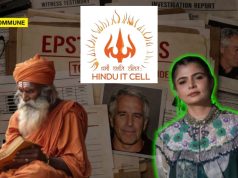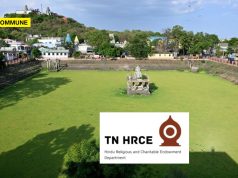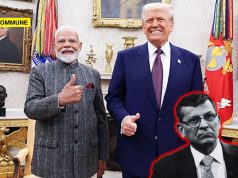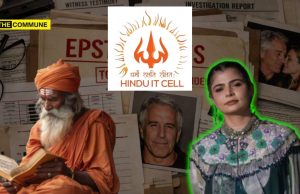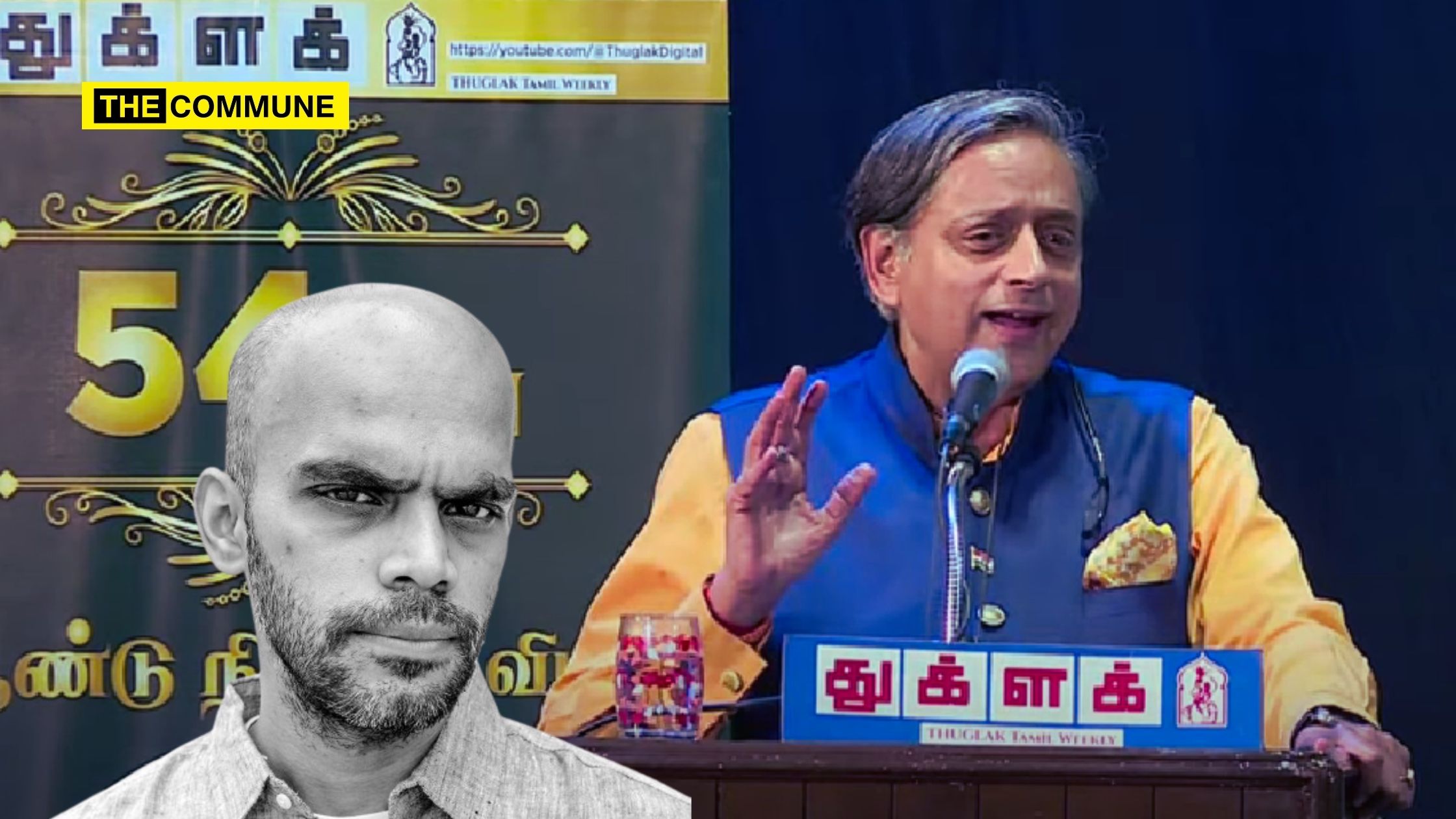
Congress MP Shashi Tharoor took part in and addressed the 54th-anniversary celebration of the Tamil weekly Thuglak. Tharoor made note of 6 points that he wanted to cover in his speech among which he was asked to speak about the relevance of the UN today as well as the Maldives issue.
Shashi Tharoor discussed the relevance of the United Nations (UN) in the face of current conflicts like the Russia-Ukraine war and the Gaza conflict. He explained the historical context of the UN’s creation after the failure of the League of Nations following World War I and highlighted the veto power of major nations in the UN Security Council. Tharoor acknowledged the UN’s limitations but emphasised its role in preventing further deterioration. He recognised the UN as a reflection of global agreements, inequalities, and imperfections, quoting Dag Hammarskjold’s view that the UN exists to save humanity from hell, not take it to heaven.
Shashi Tharoor discussed the unique situation in the Maldives, acknowledging its historical ties with India and past interventions during crises. He recounted India’s role in thwarting a coup in 1988 and its subsequent assistance during a water shortage. Tharoor noted the fluctuating nature of Maldives’ government and emphasised the absence of gratitude in international affairs. He urged a mature approach in dealing with the current administration, despite its oscillation between pro- and anti-Indian sentiments. Tharoor underscored the need to monitor the Maldives-China ties, alert to China’s expanding influence in the region, and highlighted the importance of conducting foreign policy beyond social media spats. He said, “We have to watch very carefully the increasing proximity of the Maldives government to the Chinese.” He also added, “There is no doubt about the fact that China has been attempting to expand its influence throughout our periphery. They have been increasingly influential in every one of our neighbouring countries, everyone, without exception.”
“We (India) should certainly be alert and I am sure that our government must be aware of the dangers that this represents and there will be some redlines which would be privately communicated among governments,” he said further.
What looked promising up until now started taking a familiar turn as Tharoor delved into a topic wherein a reader of Thuglak magazine had asked Gurumurthy (the present Editor) a question on whether the I.N.D.I. Alliance was formed to bring Muslims to power. Tharoor went into a rhetorical mode, characteristic of the Congress.
Shashi Tharoor “emphasised” that it was about empowering all Indians, including Muslims. He highlighted the inclusivity of Hinduism, citing Swami Vivekananda’s teachings on the unity of all paths to the divine. Tharoor expressed pride in Hinduism’s acceptance, not just tolerance, of diverse beliefs. Drawing on historical examples, he underscored India’s unity in diversity, citing individuals from various religions who served the nation.
Following the typical Congress mindset, Tharoor preached secularism, urging Hindus to embrace diverse beliefs, referencing their acceptance of an “elephant-headed pot-bellied God” and if that was possible, surely Hindus could accept the “bleeding man on a cross.” He said, “In fact what does Hinduism do? Hinduism actually recognises that since no one actually has a reasonable logical basis to visualise Brahman or the Creator in any shape or form, we are free to imagine the Divine in whatever way we like. That’s why, we have 330 crore forms and divinities and names for that what we worship. So very frankly, if God can be imagined by somebody as a potbellied figure with an elephant head and I’m a Ganesh bhakt myself, why can’t God also be imagined as a bleeding man suffering on a cross, the rishis would have had no problem with that and I say this to you simply because this great sense is what makes me proud to be a Hindu because what Vivekananda said in Chicago was I’m proud to speak of a religion that has taught the world not just tolerance but acceptance.”
Talking about the “north-south” divide, Tharoor said it had grown over the past 10 years under Prime Minister Narendra Modi’s tenure, affecting federalism. He criticised the 2017 decision to change the terms of reference of the 15th Finance Commission, using the 2011 census for financial allocations, which he believes has widened the North-South divide. What is even funnier is that he quoted from RS Nilakantan, the perverted misogynist, casteist, India-hater, genocide monger’s book on the topic. He argued that the Finance Commission’s revised allocations disproportionately favour the North, sending more tax money from the South. He “highlighted” the historical subsidy of the North by the South and questioned the “lack” of rewards for the South’s development.
Tharoor also spoke about the demographic advantage of North India and criticised the potential consequences of delimitation after the lapse of the 91st Amendment in 2026. He said, “Why should the government’s reward for extraordinary economic success sustain the growth and population control below tax revenues from the Centre? The government’s answer would be that these are the rules in a democracy — one person one vote means the more people you have, the more political clout. In India, whose diversity is held together by a sense of common belonging, civic nationalism must accommodate a range of States with divergent levels of development. It is essential that all people feel that common nationhood is a winning proposition. I am a very proud Indian, but in a country where regional, religious, linguistic tensions are never far from the surface, the answer that we have more people and so we will have more money and more power risks rupturing the fragile bonds that hold us all together”
Tharoor raised “concerns” about the Hindi-speaking states dominating Parliament and the possibility of “imposing” Hindi as the official national language. Tharoor questioned the “fairness” of the democratic principle of one person, one vote, arguing that it risks rupturing the delicate bonds that hold India together.
He also added, “I do worry about Hindi, Hindu, Hindustan politics of this government, and this culture of Aryavrat domination that infects the attitudes of some has already raised the issue among many, many southern politicians, and maybe Mr. Gurumurthy (Thuglak Editor) and others may not feel it’s such a big issue. I think it is a very serious issue because the consequences of all of this threaten the very unity of India, and the South faces political disenfranchisement to go along with a sense of financial victimisation, and that combination is absolutely bound to generate resentments that can spill over beyond the confines of our routine politics.”
Tharoor accused the central government of using the Enforcement Directorate to target opposition parties.
In response to what the four Sankaracharyas said expressing reservations about the ‘prana prathishta’ for the Ram temple due to its incomplete construction and asserting that a political figure should not conduct the ceremony, Tharoor remarked, “As a Hindu, I found that a very persuasive argument. Fortunately, I was not invited to the inaugural.” He acknowledges the diversity of temple practices across regions in India, highlighting the distinctive styles within Hinduism. He criticised the chosen date, 22 January 2024, as politically motivated by the Prime Minister ahead of the elections.
Tharoor spoke of the significance of fostering a fair and just society, emphasising the BJP’s purported effort to transform the consecration of the Ram temple into a political campaign aimed at electoral advantages.
Subscribe to our channels on Telegram, WhatsApp, and Instagram and get the best stories of the day delivered to you personally.

